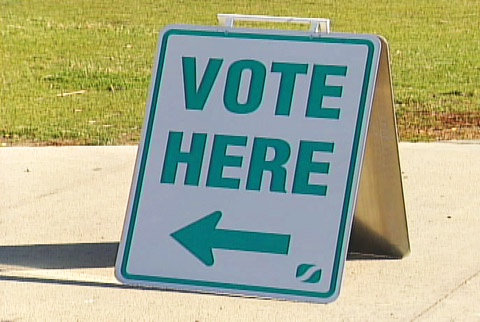HALIFAX – Elections Nova Scotia will put polling stations on university campuses for the next general election, in a bid to remove barriers for students who had previously been unable to vote while at school.

But, Dalhousie University student Aaron Beale is skeptical about whether the changes, for the next provincial election, will increase voter turnout — particularly from 18 to 25 year olds who traditionally have low voter turnout.
“Students will prioritize voting when politicians prioritize students,” said Beale, vice-president of the Dalhousie Student Union (DSU).
Brian Foster, a spokesperson for Students NS — an alliance of Nova Scotian academic institutions — also doubts that changes will have university students casting ballots.
He says the initiatives from Elections Nova Scotia are important but questions whether they will translate into higher voter turnout.
“We won’t know until the parties put their platforms out whether or not they’re going to speak to student issues, but we do know speaking about student issues is what’s going to get students to the polls,” Foster said.
“Without actually having things that matter and empower and interest students in a real way, you can put a polling station in their bedroom and it may not make them want to vote,” he said.
Jared Perry, president of the Saint Mary’s University Student Union, agrees that young voter turnout will only increase if political parties take it upon themselves to involve students.
“I think what we’re going to have to find from the political parties is something that is engaging to students,” he said. “They’re going to have to come out and talk to students about student debt or lack of employment and how they are going to address those issues.”
Other changes to increase voter turnout include installing polling stations at hospitals and nursing homes, as well as allowing people with disabilities, who are unable to visit a polling station, to vote directly from home using a write-in ballot.
You can also now cast a ballot once the writ is dropped, rather than waiting for advance polling dates or election day.
But, whether the changes will actually increase voter turnout remains to be seen. A provincial election is due to be called by fall. About 58 percent of eligible voters cast a ballot in the 2009 election.
Spokesperson Dana Doiron told Global News Elections Nova Scotia is creating more chances for people to vote, but he said it is ultimately up to them to be involved in politics.
“The apathy doesn’t change with the number of opportunities you have. If people have their reasons they choose not to vote, if they have more days to vote isn’t going to change their mind,” he said.
Jeff MacLeod, a political scientist from Mount Saint Vincent University, says Elections Nova Scotia could turn things around for voter turnout if it simply moved to online voting.
“Political culture has changed. Much of the discourse occurs instantly on Twitter and social media,” said MacLeod, an associate professor in political science and Canadian studies.
“Elections and voting almost seem to be absent in that realm, and you can’t do that and expect to be relevant. Until Elections Nova Scotia…enters that world, they’re really going to be behind in reaching people and creating interest,” he said.
Until that happens, MacLeod doubts the changes will have a major impact.
“People are busy. They’ve been busy for a long time. If you’re asking them to drive across the city and use…an archaic method for voting, you can’t help but expect that access is going to go down,” he said.




Comments